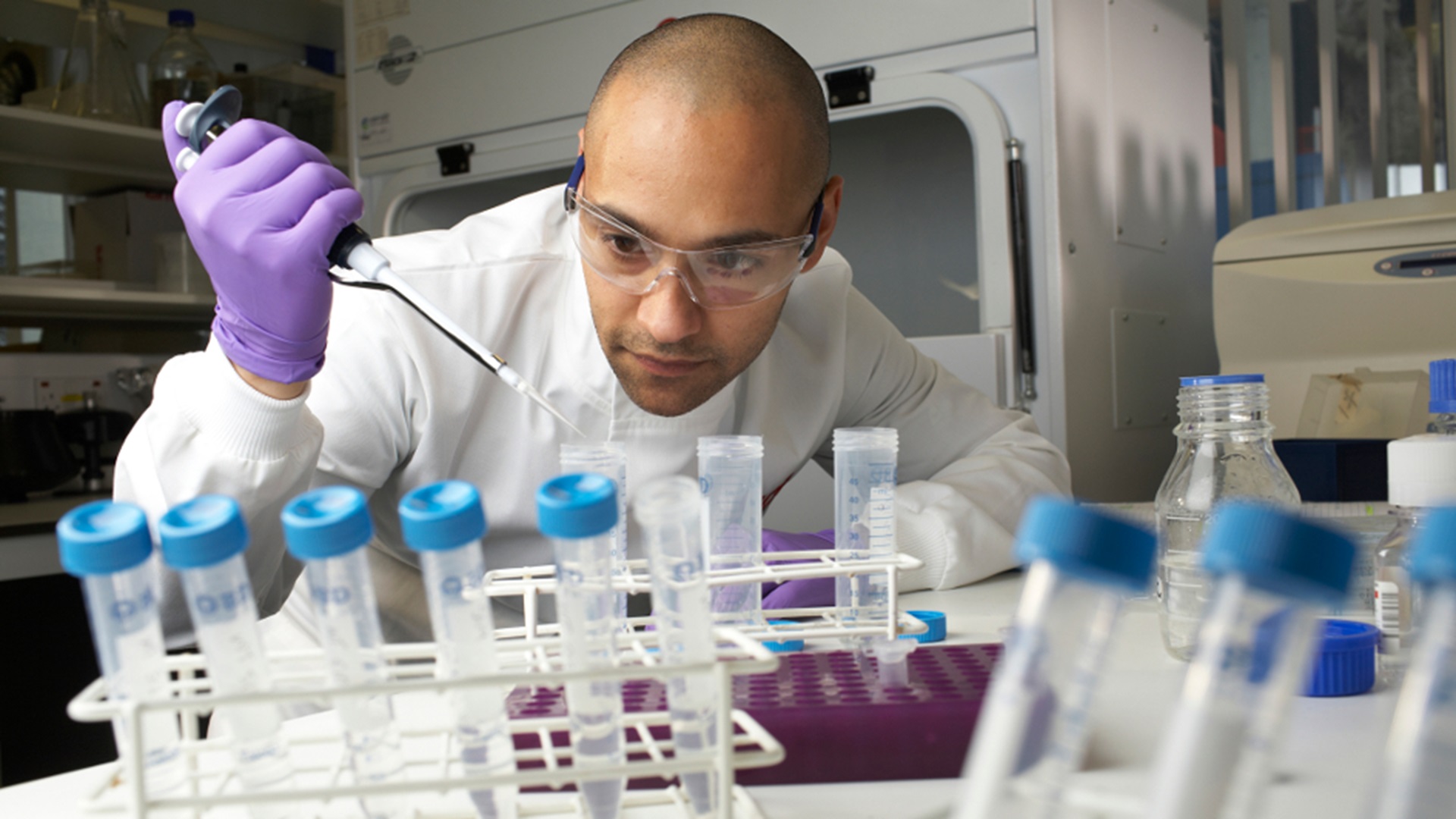
Opportunity: Biomarker for CDK4/6 and/or aromatase inhibitor response in breast cancers
Dr Maggie Cheang
Additional lead scientists/inventors:
Professor Mitch Dowsett
ICR lead scientists/inventors:
Additional lead scientists/inventors:
Dr Maggie Cheang
Professor Mitch Dowsett
Opportunity at a glance
The Institute of Cancer Research, London, is seeking partners to continue the development of a breast cancer gene signature for predicting resistance/ sensitivity to aromatase inhibitors and/or CDK4/6 inhibitors.
The intellectual property relating to the technology is claimed in PCT application PCT/EP2021/07368.
The development team is validating the clinical utility of this multi-gene biomarker test in a prospective UK-wide clinical trial that can help personalise treatment for breast cancer.
More about biomarker for CDK4/6 and/or aromatase inhibitor response in breast cancers.
Researchers at the ICR and our partner hospital, The Royal Marsden NHS Foundation Trust, played an important role in the clinical development of aromatase inhibitors, a type of hormone therapy that is now a mainstay of breast cancer treatment in post-menopausal women. We also led a major clinical trial that established the effectiveness of the novel cancer drug palbociclib (a ‘first in class’ drug that targets CDK4 and CDK6) in advanced metastatic breast cancer.
After surgery, women with early-stage hormone receptor-positive breast cancer usually take aromatase inhibitors to reduce the risk of the disease coming back. Results from the POETIC study, a phase III trial led by ICR researchers, showed that prescribing an aromatase inhibitor for two weeks before surgery can provide valuable information (through measuring the nuclear proliferation marker, Ki67, in tumour samples collected during surgery) on patients’ likely response to hormone therapy that can be used to predict their five-year prognosis.
Novel signature
Based on these studies, researchers at the ICR have identified a novel gene expression signature – Aromatase Inhibitor Resistant–CDK4/6 Inhibitor Sensitive (AIR-CIS) – that was able to identify postmenopausal women with hormone receptor-positive breast cancer who were predicted to respond poorly to aromatase inhibitors and to determine whether they may benefit from additional post-surgical treatment with a CDK4/6 inhibitor.
The multi-gene signature is currently being tested in a prospective phase III clinical trial, POETIC-A, which is evaluating whether a combination of hormaone therapy and a new CDK4/6 inhibitor, called abemaciclib, is more effective than hormone therapy alone in postmenopausal women with hormone-receptor-positive breast cancer and a high risk of relapse (measured using Ki67).
Dr Maggie Cheang develops genomic classifiers for tumour subtypes and determines their clinical utility to predict sensitivity of each tumour type to therapeutic agents in phase II and III clinical trials.
She co-invented PAM50, the 50 gene-based classifier for the intrinsic subtypes of breast cancer, which is currently licensed by Veracyte and NanoString® Technologies as Prosigna and has been implemented into multiple international clinical practice guidelines. She is the biomarker and bioinformatics lead of the POETIC-A trial, and directs these analyses for many other national and international trials. She also chairs the UK National Cancer Research Institute (NCRI) Clinical Trial Pathology Advisory Group.
Professor Mitch Dowsett’s studies into the role of hormones in breast cancer have led to the clinical development of aromatase inhibitors. His interest in the pharmodynamics of endocrine treatment led to the widespread use of the marker Ki67 in pre-surgical studies for evaluating new drugs. He views the pre-surgical setting as being uniquely informative for the in vivo study of breast cancer biology and new therapeutic strategies. To achieve this, he has been involved as the biological leader of many clinical trials – including POETIC and POETIC-A.
World-class breast cancer research
ICR researchers have been involved in some of the most famous discoveries in the history of breast cancer research and have led studies that have brought about the development of several new breast cancer drugs.
The ICR is focused on taking our research results to patients as quickly as possible. We work with industry partners including major pharmaceutical companies to develop new treatments for patients, and are the most successful university in the UK at generating invention income from our discoveries – income which we invest back into our research.
Key points
AIR-CIS, which comprises 81 genes and was derived from clinical data in publications, from inhouse laboratory models and the analysis of samples collected from the POETIC trial, can predict which women may benefit from standard hormone therapy and/or treatment with a CDK4/6 inhibitor.
The gene expression signature has the potential to be developed into a predictive biomarker to help guide treatment selection for postmenopausal women with hormone receptor-positive breast cancer.
Commercial Opportunity
The Institute of Cancer Research (ICR) has filed a patent application claiming the method for predicting which patients will most benefit from additional treatment with a CDK4/6 inhibitor alongside hormone therapy.
We are now seeking licensees and commercial development partners to support the transition of the biomarker to the clinic to achieve maximum patient benefit.
Contact us
The ICR’s interactions with industry partners are led by our Business and Innovation Office which oversees a large portfolio of partnership and licensing opportunities across a range of oncology research.
Contact:
Jenny Worthington
Business Development Manager
The Institute of Cancer Research, London